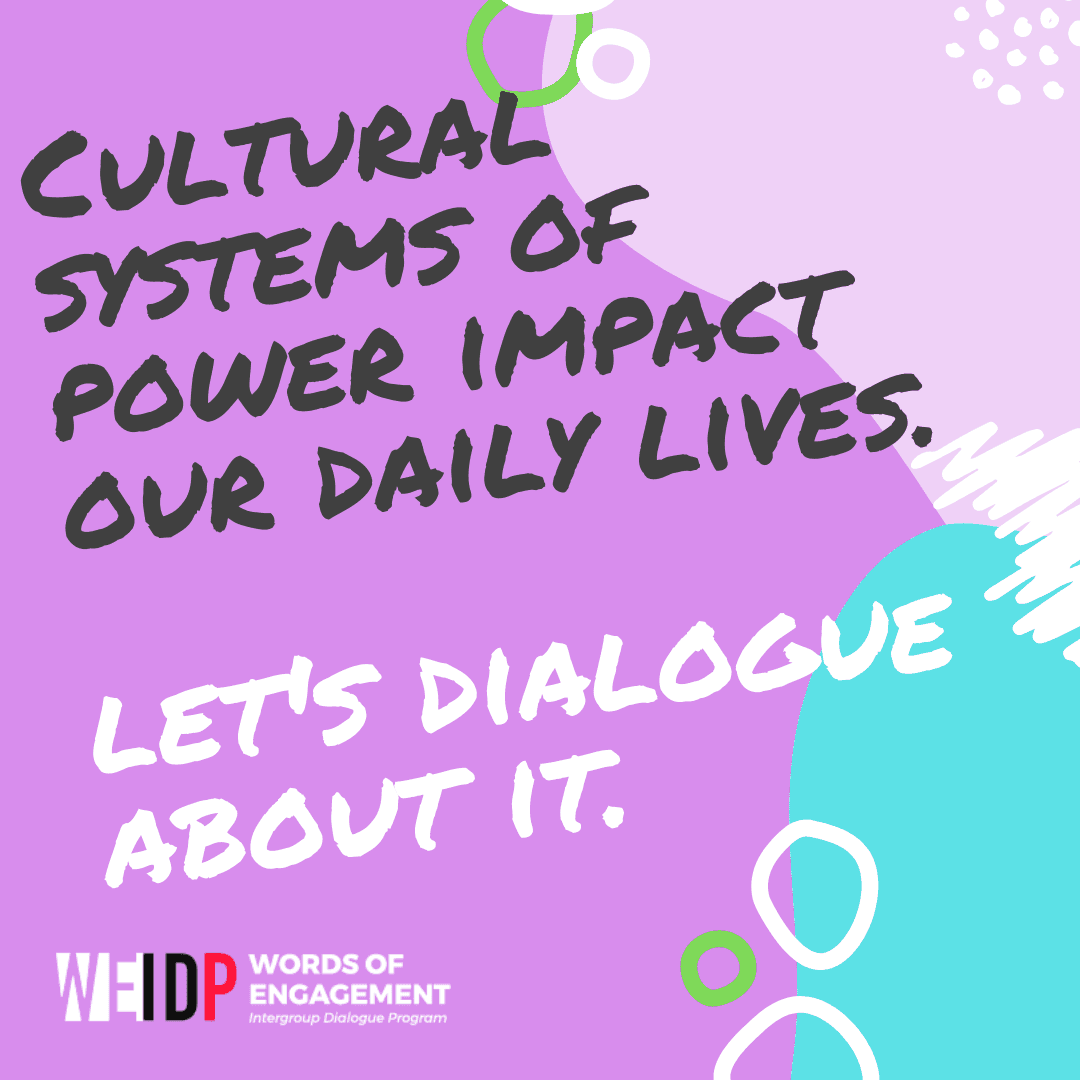Words of Engagement: Intergroup Dialogue program
The Words of Engagement Intergroup Dialogue Program (WEIDP) is a for-credit social justice education program that brings together students of diverse social identity groups for facilitated face-to-face conversations about identity, power and accountability. Utilizing theory, experiential learning, and equity frameworks, WEIDP supports participants in exploring key questions about who we are, what we know about each other, and how cultural systems of power impact our lives and relationships. The program prepares students to navigate an increasingly diverse society through relationship building across and within difference and taking steps, both individually and collectively, to promote equity and justice.
WEIDP courses count towards the Cultural Competence Diversity Requirement. Courses are typically 1-credit dialogues that occur in the first and second half of the fall and spring semesters. Each dialogue is themed around a set of social identities (e.g. dialogue on race, gender, immigration, religious bias, ability, etc.) and is co-facilitated by trained intergroup dialogue facilitators. While most of our dialogue offerings are for undergraduate students, WEIDP occasionally offers non-credit professional programming and dialogues for faculty/staff and for-credit for-credit courses for graduate students.

Goals of Dialogue
Upon completion of this course, students will have developed the following dialogical skills.
How to Register
Students can register for a dialogue course directly on Testudo. Each
dialogue course consists of 2-3 themed sections. Once a student has
registered, they will be prompted by WEIDP to complete a WEIDP student
profile on our enrollment portal. The student profile is used to place
participants in one of the themed sections of the dialogue course they
registered for on Testudo (e.g. a student who registers for EDHI338L:
Dialogue on Race, Gender, and Immigration, may be placed in the Dialogue
on Immigration).
Facilitator Community
An essential feature of the dialogue process are the skilled facilitators who support participants' learning and their overall experience. The WEIDP facilitation team consists of UMD staff, graduate students and professionals from the surrounding area. They are educators with a depth of knowledge on various dimensions of identity (such as gender, race, sexual orientation, socioeconomic background, national origin, ability/disability, religion, etc) as well as knowledge about the dynamics of power, privilege, and oppression.
To learn more about how to become a WEIDP facilitator, please email the program at dialogue@umd.edu.
Report an incident
The University of Maryland values diversity and is committed to creating an inclusive and respectful campus for students, faculty and staff. If you have been impacted by hate, bias, intimidation, sexual misconduct or discrimination, you can file a report with the units here.
You may also contact UMPD by calling:
Emergency: 911 or 301-405-3333 - Mobile Phone #3333
Non-Emergency: 301-405-3555